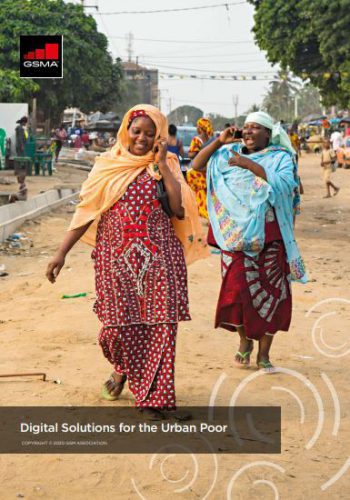The Mobile for Development Utilities (M4DU) has published the report “Digital Solutions for the Urban Poor”. The report gives insights into how mobile-enabled applications can contribute to improve basic service delivery in the context of fast urbanisation.
It is estimated that two-thirds of the world’s population will live in cities by 2050, with most urban growth concentrated in Africa and Asia. In low-income countries, this rapid urbanisation is not driven by economic growth, but by the expansion of informal settlements, which are home to 60% of the urban dwellers.
This fast-paced urbanisation poses challenges to basic service provision. City authorities and utilities cannot meet the demands of rapidly growing urban populations. This would lead to water shortages, lack of sanitation, unreliable power and insufficient waste management affecting the urban poor. It is critical for municipalities and utilities to find innovative ways to include informal settlements in service provision.
Bridging the service gap with digital solutions
Mobile connectivity and mobile-enabled innovations have expanded in low-income countries. This has enabled the proliferation of digital solutions that can make vital basic services – such as energy, water, sanitation, waste management and transport – more accessible and affordable. This dovetails nicely with Aqua for All’s work supporting innovations and solutions that contribute to improving affordable access to water and sanitation services.
Partnerships between mobile operators, start-ups and municipalities are very important to bridge this service gap. Innovations in basic service provision are successful when they are tailor-made, have social impact, and show commercial sustainability.
Read the full report: https://www.gsma.com/mobilefordevelopment/wp-content/uploads/2020/03/Mobile-for-Development-Utilities-Digital-Solutions-for-the-Urban-Poor.pdf
